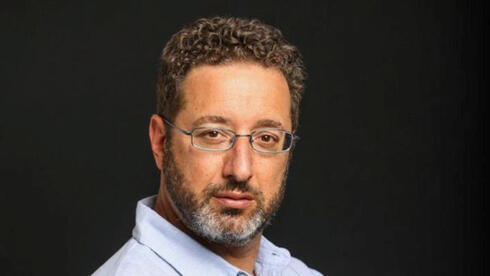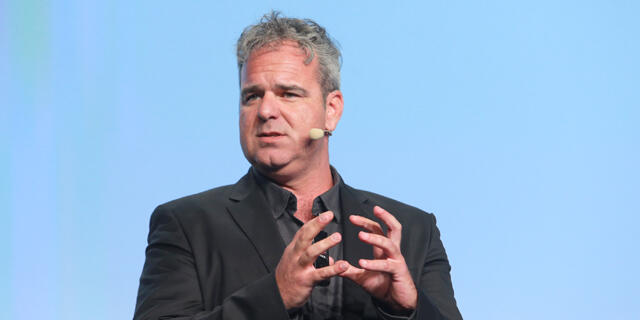
Israeli high-tech funding rounds hit five-year low despite $9.7B raised in 2024
Israeli high-tech funding rounds hit five-year low despite $9.7B raised in 2024
Cybersecurity dominates investments, accounting for 42% of total funding, while new startups struggle to emerge.
Don't get caught up in excessive optimism—this is the main takeaway from the special report summarizing 2024 in high-tech, published on Monday by the RISE Institute, led by Eugene Kandel.
"Total investments in startups have stabilized at around $2–2.5 billion per quarter—a relatively low level—while the number of active investors continues to decline, and employment data indicates ongoing stagnation in the high-tech workforce. Additionally, 2024 saw a new trend of concentration in the cyber industry," the report's authors explained.
On the surface, the general outlook for 2024 in high-tech does not seem dire, especially given the impact of war. Capital raised totaled $9.7 billion—an increase compared to $8.7 billion in 2023. Retrospectively, this number may edge closer to $10 billion, as many companies no longer report their initial funding rounds.
The trend in Israel mirrors developments in the U.S. last year and is even favorable compared to Europe, where startup fundraising has decreased. However, these figures reflect a bias toward large funding rounds, primarily in cybersecurity: the ten largest investment rounds accounted for a third of the total capital raised, and 42% of all funds went to cyber companies.
The $1 billion gap between 2023 and 2024 can almost entirely be attributed to a massive $1 billion funding round for Wiz, a cybersecurity firm, which was completed at a $12 billion valuation. RISE also referenced the $1 billion raised by SAFE, the artificial intelligence company founded by former Israeli Ilya Sutskever. However, RISE clarified that SAFE is not an Israeli company but merely operates offices in Israel—contrary to the IVC Research Center, which included SAFE’s fundraising in its third-quarter summary.
RISE expressed concern about the continued decline in the number of funding rounds, signaling that fewer new startups are emerging in Israel. The institute also highlighted a decrease in activity by foreign investors. The number of funding rounds in 2024 dropped to 1,087—a five-year low—and foreign investor participation in Israel decreased by 16%. At this point, it is difficult to determine whether this reduction stems from deliberate decisions to avoid Israel or broader challenges faced by investment funds struggling to raise capital in recent years.
A clear trend, however, is the reduced activity of investors from Europe and Asia, with 80% of foreign investments now coming from the U.S. RISE conducted a special analysis of the 20 most active funds to neutralize the issue of limited capital. The analysis revealed that several funds reduced their activity in Israel. While 15 of these funds, including Andreessen Horowitz, Sequoia, and General Catalyst, had invested in Israel in the past, only eight made investments in 2024.
On the other hand, Sequoia, one of the largest venture capital funds globally, was more active in Israel than ever before. It reopened its local office and participated in funding rounds accounting for 24% of total capital raised in 2024. Even during peak years, when Insight Partners and Tiger Global dominated the investment landscape, their share never exceeded 16%.
Looking ahead, RISE highlighted the emerging defense-tech sector but noted that its overall scale remains small. At the same time, Israel's high-tech sector is becoming increasingly dependent on cybersecurity and enterprise software, while other sectors struggle to progress. Eugene Kandel also raised concerns about Israel’s decline in global artificial intelligence rankings. "There is no justification for political changes to disrupt programs such as the National AI Initiative, which are not tied to political debates and aim to advance Israel during one of the most significant global revolutions," he said. He welcomed the establishment of the national AI program as a step in the right direction, but emphasized that real progress will be the ultimate measure of success.
"After the instability of 2023, marked by the judicial reform crisis and the Swords of Iron war, the key recommendation is for the Israeli government to articulate a clear vision and strategy that inspires confidence among investors and entrepreneurs," Kandel said. He called for a policy of responsible economic management, the preservation of democratic and liberal values, and efforts to minimize international isolation.
Kandel added, "The primary deterrent for foreign investors in Israeli high-tech is the heightened sense of risk stemming from the security situation, combined with economic and political uncertainty. It is crucial to actively encourage such investors and eliminate barriers to entry."
RISE recommended targeted advocacy and outreach to major global investors who are not currently active in Israel, with a particular focus on attracting corporate investment funds. The analysis also touched on the brain drain Israel has experienced over the past year, emphasizing the need for an effective plan to retain and attract talent back to the country. "Such a program should not be limited to tax benefits but must take a holistic approach, addressing factors such as research grants and access to advanced infrastructure," the report concluded.















